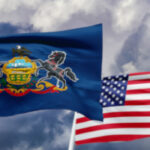A luxury casino located in Kiev, the capital of Ukraine, opened its doors to guests after undergoing a major overhaul of its VIP gambling space.
The Billionaire Casino Re-Opens
Housed inside the 5-star InterContinental Kiev hotel, which dates back to 1638, the Billionaire Casino saw its gaming floor renovated with 14 new luxury table games and roulette wheels supplied directly from the Italian manufacturer Abbiati Casino Equipment. Spread across 5,000 square feet of gaming space, the casino features around 50 slot machines supplied by manufacturers like Novomatic, International Game Technology (IGT) and Euro Games Technology (EGT). The Billionaire Casino was the first gaming property to get re-certified following the country’s reversal of a prohibition of gambling.
Back in 2009, the country banned casinos after a fire in a gambling hall in the country’s fourth-largest city, Dnipro, resulted in nine fatalities. The blanket ban on gambling signed by then-President Victor Yushchenko also covered all forms of online gaming.
In the summer of 2020, Ukrainian President Volodymyr Zelensky signed the “State Regulation of Organizing and Conducting Gambling” law to allow gambling to return to the country and let casinos re-apply for operating licenses per the established set of criteria. Any casino which applies for its gambling privileges to be restored should make provisions to prevent residents or organizations from Russia, Iran or North Korea, from participating in operations or from gaining a major stake in the business.
The Cost of Running a Casino
The law implemented a differentiated approach with regards to the cost of casino licenses, as permits in the capital Kiev fetch €3.8million ($4.5 million), while in any other part of the country, the fee is €2.2million ($2.6 million). Casinos also pay the government a standardized 12.5% gambling tax on revenue from slot machines and table games.
Gambling tax policy is among the controversial issues in Ukraine recently, after a proposal put forth in February suggested all gambling verticals pay a 10% flat rate on gross revenue. This emerged despite initially considering a differentiated approach with rates ranging between 10% and 30%.
In addition, the proposal included scrapping plans for annual license fee hikes to remain in place until the country’s central monitoring system for gambling becomes operational, thereby reducing projected revenues three times.
During discussions of the proposal in the Ukraine Parliament, the Scientific and Expert Management Committee argued that such a decrease in the tax burden on licensees is not justified, especially with regards to the negative social impact from gambling, which requires a policy of higher tax to minimize consumption.




